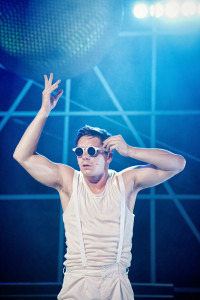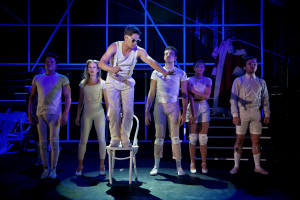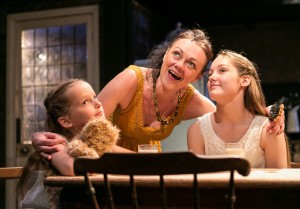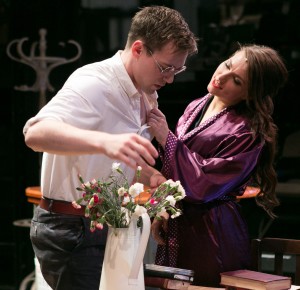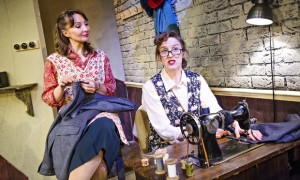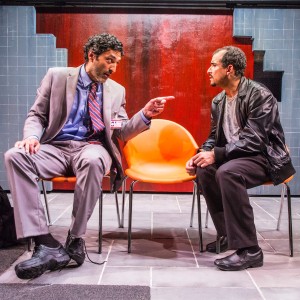TS Eliot’s drama is all too frequently overlooked and overshadowed by his poetry, written off as cumbersome and inaccessible. Murder In The Cathedral, Eliot’s 1935 take on the assassination of Archbishop Thomas Becket in Canterbury Cathedral during the reign of Henry II in 1170 is, however, often deservedly the exception. Written entirely in verse, it is the result of Eliot’s commission by George Bell, the then Bishop of Chichester, to write a play for the Canterbury Festival that year.
The action occurs between 2 and 29 December 1170, chronicling the days leading up to the martyrdom of the politically ambitious Becket following his absence of seven years in France. Becket’s internal struggle is the main focus of the piece and Scena Mundi’s interesting new production, staged recently and aptly at Southwark Cathedral with a nod to the approaching 850 year anniversary of Becket’s murder in 2020, does well to draw on and accentuate the strengths of the piece.
It isn’t often that one has the chance to attend a theatrical performance in a cathedral and the echoey, dark vaults and chambers and potent smell of frankincense created the requisite eerie and unique atmosphere immediately and perfectly. Magical.
The huge space gave endless opportunities for use by the actors and whilst the majority of the action took place at quite a distance it was good, at times, to witness the excellent performances of the Women of Canterbury at close quarters, which created an immersive feel. The play begins with this Greek drama-style Chorus, a key component of the piece, singing, foreshadowing the coming violence. The Chorus becomes a character in its own right, its voice changing and developing as the action ensues and as it offers commentary and provides a link between audience, characters and action. All eight female members of this ensemble contributed well to its success as a dramatic mechanism; the collective speech was spot on and the singing resonated with a foreboding that was beautifully understated yet chillingly effective.
Jasper Britton’s Becket was charismatic and commanding, achieving the perfect balance between resilient martyr and sympathetic, passionate preacher, accentuating perfectly some of Eliot’s more lyrical bits of verse. His delivery of Becket’s meaningful Christmas day sermon is particularly memorable.
The lighting design also deserves special mention, the occasional blood red filters lending themselves marvellously well to the overall atmosphere.
The only real drawback was that whilst a performance of this play in a cathedral is of course incredibly atmospheric and fitting, the majority of the audience were usually a very long way from action that often required the close proximity of onlookers to achieve maximum dramatic impact (for example, the murder itself).
I would be interested to see how this production might work in the smaller, more intimate setting of a church.


